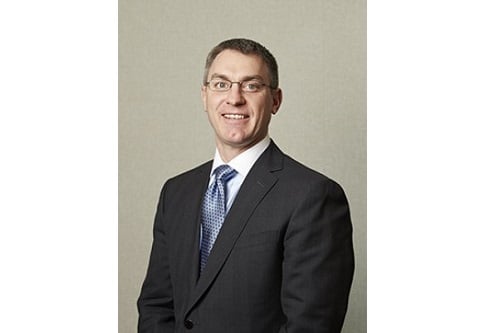A seasoned advisor explains his views on client-focused advice, mentorship, and the value of tenacity

What’s the secret to developing a successful career in the financial-services space over 20 years? For Kyle Richie, senior executive consultant at the Richie Group with IG Private Wealth Management, it’s all about passion.
“I worked very hard, but it wasn’t about the money,” Richie said, looking back on his early days. “I’d look at the best of the best — not just within my company but in the industry, including Canada and the US. I saw how they continually made their products better and gave their clients a better long-term experience, so I started doing that early on.”
His practice enjoys higher average asset levels per client than the broader industry — the vast majority of his clients are doctors or dentists — but Richie said the AUM doesn’t motivate him. Instead, he’s focused primarily on making the industry better, and making sure clients have good experiences and better outcomes. That means providing them with sound advice based on comprehensive, specialized financial planning.
“I’d say 20% or less of my job would be just on the investment side, and 80% or more would focus on all the others — tax planning, whether someone should take salary or dividends from their corporation, how to structure business agreements, and estate planning,” he said.
That inclination towards specialized planning requires expertise in different areas, which is why the Richie Group has a staff of professionals with complementary skills and qualifications. And while designations are important in the initial stages to impress certain people, the important thing Richie always focuses on is how it can — and should — contribute to a holistic financial-planning process.
“I think as an industry, we have some advisors doing really exceptional, genuine financial planning,” he said. “But there’s a whole other side still getting most of their business from offering an investment product and a little advice attached to that. More advisors need to take a holistic approach to financial planning, and that means investing time in front of a client — more time than it takes to sell them something.”
Like other holistic-planning firms, the Richie Group uses that time to uncover issues that their clients don’t even know their facing. Many assume they don’t have tax problems, but that’s only because they’ve never been diagnosed; a closer check-up from Richie’s team reveals issues that may not be obvious today, but could become serious in three, five, or 10 years if left unaddressed.
But not all warnings to clients involve the far future, especially when it comes to investing. Within the last five to 10 years, according to Richie, people have gotten used to instant information and have tended toward knee-jerk reactions to unfounded news and trends. They get a sense of urgency and excitement that tends to provoke emotional decision-making.
“Speculating isn’t necessarily a bad thing; you just have to make sure it doesn’t hurt when what they’re speculating on goes dramatically wrong,” he said. “So keeping clients focused on their long-term wealth plan, one that’s specific to their scenario, is more important than keeping an eye on individual stocks and fads on any given day.”
Because of his firm’s ability to provide holistic advice and valuable coaching, he isn’t concerned about the rise of technological competition. From his viewpoint, robo-investment platforms can expose which advisors are just salespeople, and which ones are providing genuinely holistic advice. And digital wealth platforms, as advanced as they are, don’t have the capacity to handle complex wealth situations and provide behavioural advice.
Richie doesn’t just provide advice to clients. Early in his career, he had a mentor who shared his client-focused mindset and helped him advance. Today, he’s paying it forward by lecturing and educating advisors across Canada — he’s spoken to more than 2,000 — and encouraging young advisors to find mentors of their own.
Another piece of advice he has for greenhorns is to be persistent, especially when it comes to prospecting and building their own book. “There’s a huge amount of rejection that someone is likely to encounter on the way to that,” he said. “A lot of early advisors don’t realize it’s not so much about the financial-planning skills, but it’s more about the sales skills and tenacity or dedication to stick with it when everyone is telling you ‘no, thank you.’”
Right now, Richie’s business is solid. Not only does he have the right mix of AUM and client volume to do in-depth, holistic financial planning, but he can also look at any client the firm has worked with for five or 10 years and see how their income, wealth, and investment portfolio have grown.
“I’m not planning to retire. I’m 43 years old right now, and I could afford to retire today. But I have a ton of fun doing what I do,” he said. “I don’t think the industry will change much over the next number of years. But when my wife says ‘Aren’t you still working too much? We have grandkids now. You need to retire,’ I’ll think about it.”
Follow WP on Facebook, LinkedIn and Twitter
Related stories:
A veteran's view of the ETF business
Fund manager’s experience critical when choosing alt fund



